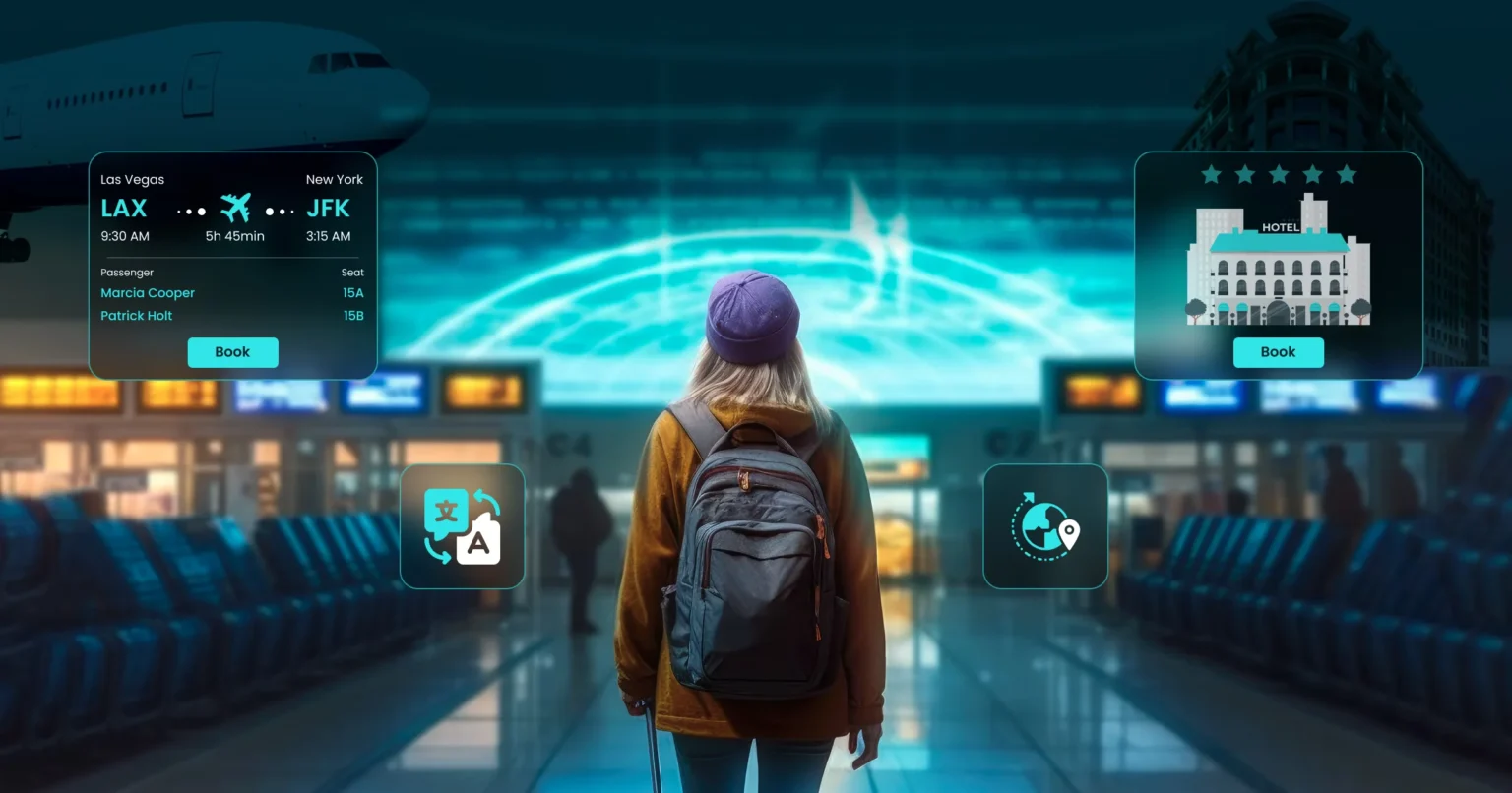The travel industry is undergoing a massive transformation thanks to the rise of Artificial Intelligence (AI). Gone are the days of spending hours researching and comparing travel options online. Now, AI tools are rapidly changing how we plan vacations, offering highly personalized itineraries and seamless booking processes in just seconds. This shift is reshaping the way people book their trips, offering convenience, speed, and customization like never before.
AI-Powered Travel Platforms: A New Era in Travel Planning
Start-ups like Mindtrip are at the forefront of this travel revolution. The company has developed a generative AI platform that can create entire travel plans based on just a few lines of text. Whether you’re looking for flights, hotels, dining options, or excursions, Mindtrip’s AI will recommend the best choices and even link you directly to booking platforms. According to Andy Moss, CEO of Mindtrip, “You don’t need to keep switching between sites. It’s all in one place.”
Other AI-powered platforms such as Vacay and Navan are also gaining popularity. These platforms cater to both leisure and business travelers, offering smart solutions that save time and make planning a breeze. Big tech giants like Google, OpenAI, and Anthropic are also jumping into the market with their own AI assistants for trip planning, further enhancing the user experience.
Traditional Travel Companies Embrace AI

While AI start-ups are pushing the envelope, established travel companies are adapting and incorporating AI into their services. Expedia, for example, has introduced Romie, an AI assistant designed specifically for group travel. Booking.com has launched a Smart Filter feature, which allows users to specify niche requests and find unique travel options. According to Rob Francis, Booking.com’s tech chief, “Agentic AI will help us provide something unique.”
Chatbots and Instant Customer Service: A Game Changer
AI tools are not only improving the booking process, but they’re also enhancing customer service. Club Med, for example, has launched a WhatsApp chatbot, drastically reducing response times. The company’s chairman, Henri Giscard d’Estaing, noted, “When a human answered, it took around 90 minutes.”
In addition to saving time, AI-powered customer service tools are making travel experiences more efficient and user-friendly, offering personalized responses to each customer’s needs.
Instant Itinerary Changes with AI
One of the most significant advantages of AI in travel is its ability to adapt instantly to changes. Jukka Laitamaki, a professor at New York University, points out, “If your travel plans change, the system can update your itinerary instantly—no phone calls needed.” This flexibility gives travelers peace of mind, knowing that their plans can be adjusted with minimal effort and without the hassle of traditional booking systems.
Challenges and Opportunities in the AI Travel Revolution
While AI’s impact on travel planning is undeniable, the shift may not be as rapid as expected. According to Eva Stewartfrom GSIQ consultancy, many small and mid-sized travel operators lack the resources to integrate AI at scale. Start-ups are innovating quickly, but larger, established online travel companies are expected to leverage their vast resources and loyal customer bases to take control of the market.
As Laitamaki explains, “They’ve already got loyal customers—that’s their edge.” Major companies have the infrastructure and brand recognition to dominate the market, while smaller players may struggle to catch up.
The Future of High-End Travel: Human Agents Remain Relevant
Despite the rise of AI in the travel industry, there are certain segments where human agents are likely to remain essential. Laitamaki notes, “Ultra-luxury travelers still want a real person.” While AI is poised to handle the majority of everyday travel planning, high-end clients may still prefer the personal touch provided by human agents, especially for bespoke travel experiences.
Conclusion: AI is the Future of Travel Planning
AI is undeniably the future of travel planning, making the process faster, more efficient, and more personalized. From seamless bookings to instant itinerary updates, AI is changing the way we travel. While smaller companies may face challenges in integrating AI, the big players are already stepping up to meet demand, ensuring that AI will continue to shape the future of the travel industry for years to come.
If you’re ready to embrace the future of travel, consider using AI-powered platforms for your next trip. Whether you’re planning a quick getaway or a luxurious vacation, AI is here to make the process easier, faster, and more enjoyable.




